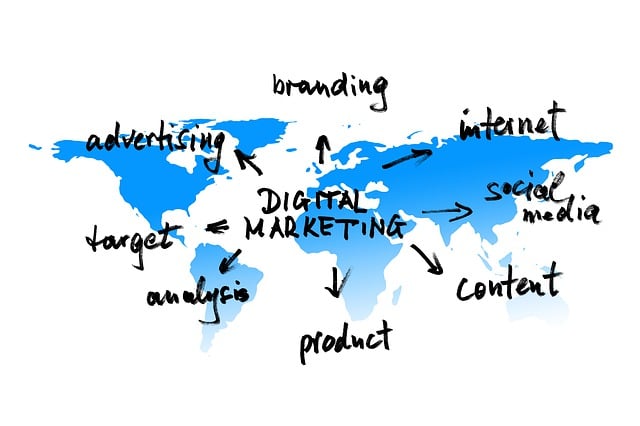AI is revolutionizing digital marketing as showcased at recent Digital Marketing Summits. Marketers use machine learning and natural language processing to predict customer behavior, automate content, and deliver hyper-personalized messages. AI-driven insights enable data-informed decisions, real-time campaign measurement, and stronger brand-consumer relationships. Expert talks at the summit highlighted AI's role in personalizing experiences, optimizing audience segmentation, enhancing visual marketing, and leveraging chatbots. Success stories from top brands like Amazon and Netflix demonstrate AI's versatility in e-commerce and customer service. The future of AI marketing includes personalized content on a massive scale, conversational AI, predictive analytics, and AI-driven content creation. However, ethical implementation is crucial to address privacy concerns and foster consumer trust.
The rise of AI in digital marketing is transforming how brands connect with customers. From personalized experiences powered by machine learning to content creation aided by natural language processing and computer vision, AI is reshaping every aspect of marketing strategy. This article explores these developments, delving into ethical considerations, successful case studies from top brands, and future trends at the forefront of the Digital Marketing Summit.
The Rise of AI in Digital Marketing: A New Paradigm

The rise of AI in digital marketing has marked a significant shift in the way businesses connect with their audiences. This transformative trend, evident at recent Digital Marketing Summits, highlights AI’s potential to personalize and optimize marketing strategies on an unprecedented scale. By leveraging machine learning algorithms and natural language processing, marketers can now predict customer behavior, automate content creation, and deliver targeted messages with remarkable precision.
AI-driven insights enable more informed decision-making, enabling businesses to allocate resources effectively and measure campaign performance in real time. This new paradigm shifts the focus from broad targeting to hyper-personalized experiences, fostering deeper connections between brands and consumers. As AI continues to evolve, its role in shaping the future of digital marketing will only become more prominent.
Understanding AI's Role in Personalizing Customer Experiences

In today’s digital era, Artificial Intelligence (AI) is no longer a futuristic concept but a game-changer in the realm of marketing. By leveraging AI, businesses can now offer personalized customer experiences that were once unimaginable. At the Digital Marketing Summit, experts highlighted how AI enables companies to analyze vast amounts of data, understand consumer behavior, and deliver targeted content. This level of customization fosters stronger connections with customers, increasing engagement and loyalty.
AI-driven personalization goes beyond simple product recommendations. It involves creating tailored journeys for each customer, from initial interaction to post-purchase support. For instance, AI algorithms can adjust pricing based on individual browsing history, send contextually relevant communications, and provide proactive assistance. Such sophisticated strategies not only enhance the overall experience but also drive conversions and revenue.
Leveraging Machine Learning for Data-Driven Campaign Strategies

Machine Learning (ML) has emerged as a game-changer in digital marketing, empowering marketers with data-driven insights to create tailored and effective campaign strategies. By leveraging ML algorithms, businesses can analyze vast amounts of customer data, identify patterns, and make informed decisions that were previously impossible. This technology enables the creation of personalized experiences for each consumer, increasing engagement and conversion rates.
At the forefront of this evolution is the Digital Marketing Summit, where industry experts gather to discuss the latest trends and innovations. Here, marketers learn how ML can optimize target audience segmentation, predict customer behavior, and automatically adjust campaigns in real-time based on performance metrics. With such advanced capabilities, businesses can stay ahead in today’s competitive digital landscape, ensuring their marketing efforts resonate with the right customers at the right time.
Natural Language Processing: Enhancing Content Creation and Engagement

Natural Language Processing (NLP) is transforming digital marketing strategies at a remarkable pace. By understanding and interpreting human language, NLP enables marketers to create more personalized and engaging content tailored to specific audiences. This technology goes beyond basic sentiment analysis; it can analyze text and context to uncover insights, identify trends, and predict consumer behavior.
At the upcoming Digital Marketing Summit, experts will discuss how NLP powers dynamic content generation, enabling real-time personalization on a massive scale. Marketers can leverage this technology to craft targeted messages that resonate with individual customers, fostering deeper engagement and driving conversions. With NLP, digital marketing becomes more than just a series of tactics; it’s an art that seamlessly blends technology with human understanding.
Computer Vision and Its Impact on Visual Marketing

Computer Vision is transforming visual marketing strategies at a remarkable pace, particularly with advancements showcased at the Digital Marketing Summit. This technology enables AI systems to interpret and understand visual content, opening up new avenues for marketers. By analyzing images and videos, Computer Vision can identify objects, faces, and scenes, leading to precise audience targeting and personalized campaigns.
For instance, it allows brands to gain insights from social media trends by understanding popular visuals and their contexts. This enables them to create more engaging content that resonates with specific demographics. Moreover, Computer Vision enhances visual search capabilities, allowing users to find products based on images they upload, rather than typing keywords. Such innovations are revolutionizing how businesses connect with consumers in the digital landscape.
Ethical Considerations: Privacy, Transparency, and Bias in AI Marketing

As AI continues to revolutionize digital marketing, it’s crucial to navigate its implementation with ethical considerations in mind. Privacy is a paramount concern; businesses must ensure transparency in data collection and usage, respecting consumer privacy rights. Moreover, bias in AI algorithms can perpetuate existing societal biases, leading to unfair targeting or personalized experiences.
At the Digital Marketing Summit, experts highlighted the need for accountability in AI marketing practices. This includes open communication about how personal data is used and ensuring algorithms are fair and unbiased. Addressing these ethical considerations will not only build trust with consumers but also contribute to the long-term success and sustainability of AI in marketing.
Case Studies: Successful AI Implementations in Top Brands

Successful AI implementations have been transforming top brands across industries. For instance, Amazon has leveraged AI for personalized product recommendations, enhancing customer experience and boosting sales. Similarly, Netflix uses AI algorithms to analyze viewer behavior, curating tailored content that keeps users engaged. These case studies demonstrate how AI can optimize marketing strategies by providing valuable insights into consumer preferences and behaviors.
At the recent Digital Marketing Summit, experts highlighted numerous success stories of AI in action. Nike, for example, employs AI for inventory management, ensuring popular products are always in stock while minimizing overstock. This not only reduces costs but also improves customer satisfaction. Additionally, IKEA has utilized AI chatbots to offer personalized product suggestions, improving customer service and increasing online sales. These implementations showcase the versatility of AI in digital marketing, from enhancing e-commerce operations to providing intuitive customer support.
The Future of AI in Marketing: Trends and Predictions

The future of AI in marketing promises exciting developments and innovative strategies. As we move forward, several trends are set to shape this field:
1. Personalization at Scale: With advancements in machine learning, AI can analyze vast customer data to deliver hyper-personalized experiences. This trend will continue to dominate, ensuring that marketing campaigns resonate with individual consumers, enhancing engagement and conversions.
2. Conversational AI and Chatbots: The integration of chatbots and virtual assistants into marketing strategies is on the rise. These tools enable 24/7 customer support, provide instant responses, and offer personalized product recommendations, creating a seamless and interactive user experience.
3. Predictive Analytics: AI’s capability to predict consumer behavior will become even more refined. Marketers can anticipate trends, forecast sales, and optimize pricing strategies, giving them a competitive edge at the Digital Marketing Summit and beyond.
4. AI-driven Content Creation: The use of AI in content generation is gaining traction. From creating personalized product descriptions to generating creative ad copy, AI can assist marketers in producing high-quality, tailored content at scale.
